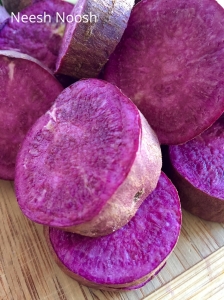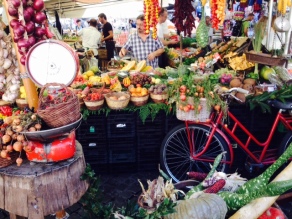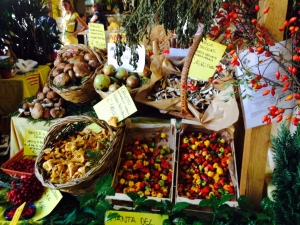In Vayeshev, Jacob returns to his home to “settle.” But, there is not any internal or external settling for him. Jacob’s sons are upset by the arrogance of his favorite son, Joseph. The brothers strip Joseph of the elaborate tunic Jacob had given him and throw him into a pit. Rather than letting him die, though, Reuben convinces the other brothers instead to sell him into slavery. But, the brothers lie to their father that his beloved Joseph was killed by presenting his bloody tunic.
Why is Jacob unable to have tranquility in his life after everything he’s been through? Yanki Tauber writes, “many are content to live this lie: to forget what happened yesterday, avoid thinking about what will happen tomorrow, ignore the sadness in a neighbor’s eye, the poverty on the other side of town and the bombs in the other time zone.”
While one may look at a farm and see a tranquil, lush landscape, agriculture is anything but calm. Rather, it is the epicenter of global fights for human rights, land sovereignty and the survival of family farmers. This Wednesday, December 10, is Slow Food’s Terra Madre Day–a global celebration of local foods. The Terra Madre network in 160 countries supports food sovereignty–local communities control over the growing, production and eating of food. It is also about preserving indigenous food cultures and traditions in the face of threats from international agriculture and food homogenization that eliminates food diversity, hurts
small farmers and devastates communities. Part of Terra Madre’s commitment to preserving food diversity is through it’s Ark of Taste which has already 2,000 foods from around the globe that are at risk of disappearing.
It’s also Human Rights Day on December 10. While the family farmers of Terra Madre fight off threats from industrial agriculture, tens of thousands of industrial farmworkers are fighting for their human rights. The Los Angeles Times has an incredible story about farmworkers in Mexico picking tomatoes at “mega-farms” for the US market. They live in “squalid conditions, trapped for months at a time [and] camp bosses illegal withhold [of] wages.”
One worker said, The real truth is that we’re work animals for the fields.
Continue reading






